Brake Fluid Replacement in Colorado Springs: How Often Is Enough?
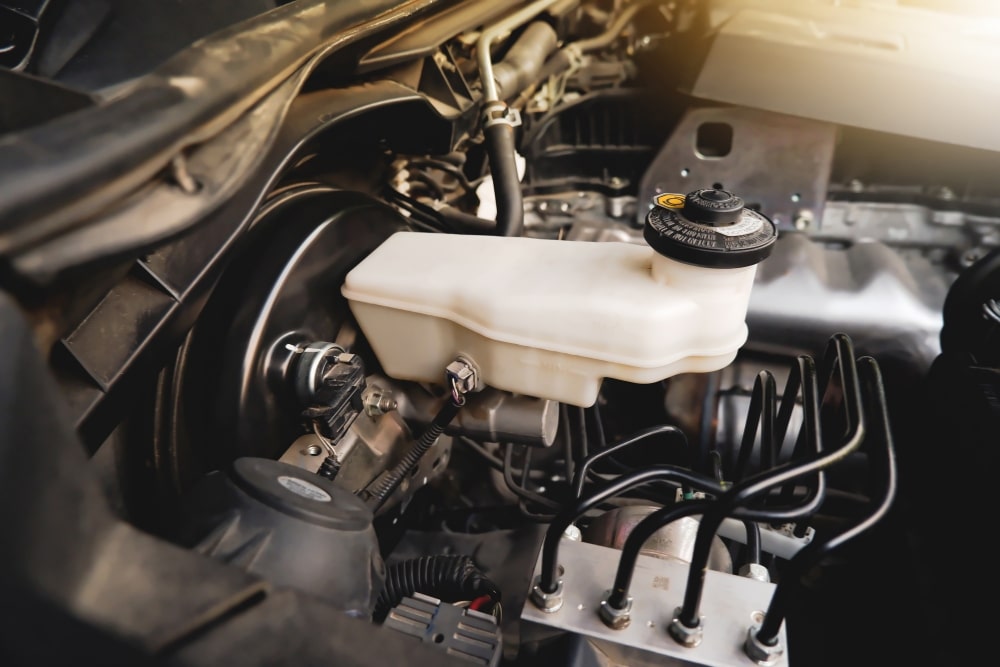
Brake fluid may not get the same attention as oil changes or tire rotations, but it’s just as essential for safe driving. Without fresh brake fluid, your brakes can’t generate the pressure needed to stop your vehicle effectively. Over time, this fluid absorbs moisture, loses its effectiveness, and can even lead to corrosion inside your brake system.
So how often should you replace it? Most manufacturers recommend every two to three years, but in Colorado Springs, conditions like altitude, steep grades, and temperature swings can shorten that interval. That’s why Express Auto Repair encourages local drivers to check their brake fluid more often and stay ahead of costly repairs.
In this guide, we’ll explain why brake fluid matters, how the replacement process works, signs it’s time for service, and what happens if you neglect it. We’ll also look at why local driving conditions add extra stress and why choosing a trusted shop for brake repair in Colorado Springs is key.
Why Brake Fluid Needs Replacement
Brake fluid is hygroscopic, meaning it naturally absorbs moisture from the air. Even in a sealed system, small amounts of water find their way in through hoses and seals. That extra moisture lowers the fluid’s boiling point and introduces rust-causing contaminants.
When that happens, you may experience:
- A soft or spongy brake pedal
- Longer stopping distances
- Brakes that overheat and fade on long descents
- Corrosion in brake lines, calipers, or the master cylinder
Replacing the fluid removes those contaminants, restores its boiling point, and keeps your braking system responsive.
The Brake Fluid Replacement Process
A brake fluid replacement is much more than topping off the reservoir. At a professional shop like Express Auto Repair in Colorado Springs, the process is precise and thorough.
Step 1: Inspection
Technicians begin by inspecting the brake system, looking at fluid color, checking for leaks, and ensuring the reservoir and lines are intact.
Step 2: Removing Old Fluid
The old, moisture-contaminated fluid is extracted from the system. Specialized equipment may be used to ensure no fluid remains in the lines.
Step 3: Flushing the System
Clean fluid is pushed through the brake lines to flush out rust, debris, and air bubbles. This ensures the system is completely cleared before new fluid is added.
Step 4: Adding Fresh Fluid
The system is filled with the manufacturer-recommended brake fluid type (DOT 3, DOT 4, or DOT 5.1, depending on your vehicle).
Step 5: Bleeding the Brakes
Technicians bleed the system at each wheel to remove any trapped air, ensuring firm, responsive pedal feel.
Step 6: Final Check
A test drive or pressure test confirms the brakes are operating properly before returning the vehicle to the customer.
This detailed process guarantees your brake system is clean, efficient, and ready to handle Colorado’s demanding roads.
How Often Should You Replace Brake Fluid?
For most vehicles, every 30,000 miles or two to three years is the standard recommendation. But there are factors that can shorten that timeline:
- Mountain driving generates more heat and stress.
- Stop-and-go city traffic wears brakes more quickly.
- Weather shifts cause condensation inside brake lines.
- Towing or hauling adds strain on braking components.
Because of these conditions, many Colorado Springs drivers benefit from having their brake fluid checked annually during routine maintenance.
Warning Signs You Need Brake Fluid Replacement
Even if you haven’t hit the mileage or year mark, your car may already be telling you it’s time. Watch for these signs:
- Brake warning light illuminated
- Pedal feels soft, spongy, or sinks too low
- Fluid in the reservoir looks dark or dirty (instead of clear amber)
- Brakes feel sluggish or less responsive
- Burning smell after long downhill drives
If you notice any of these, don’t delay. Schedule a brake fluid replacement at Express Auto Repair to stay safe and avoid costly damage.
The Risks of Driving With Old Brake Fluid
Neglecting this service can put your safety and wallet at risk.
Potential Problems
- Corroded brake lines that may leak or fail
- Seized calipers causing uneven braking and rotor damage
- Master cylinder failure, which can lead to total brake loss
- Reduced stopping power in emergency situations
Why Preventative Maintenance Makes Sense
Brake fluid may seem like a small detail, but it plays a major role in your vehicle’s safety. Once it becomes contaminated with moisture or debris, it starts to break down, and when that happens, it puts the entire braking system under strain.
A quick, affordable fluid replacement not only restores performance, it helps prevent more serious issues from developing over time. By taking care of this essential service now, you’re helping to extend the life of your braking system and avoid bigger problems (and longer repair times) down the road.
Colorado Springs Driving: Extra Stress on Brakes
Colorado’s unique conditions make brake fluid replacement even more important.
- High altitude: Less dense air means engines and brakes work harder.
- Mountain descents: Long downhill stretches create constant heat in the fluid.
- Weather extremes: Cold mornings followed by warm afternoons lead to condensation.
- Active lifestyle: Towing, hauling, and long road trips push brakes beyond average use.
For these reasons, Colorado drivers often need brake fluid service more frequently than national averages suggest.
Local Expertise and Trusted Service You Can Count On
When it comes to brake fluid replacement or brake repair in Colorado Springs, trust matters. At Express Auto Repair, we combine professional certifications with local expertise to give drivers peace of mind and lasting value.
What Sets Us Apart
- More than 20 years serving Colorado Springs
- ASE Blue Seal and NAPA Gold Certified shop
- AAA Approved, RepairPal Certified, Carfax Top Rated, and BBB A+ Accredited
- Same-day service with shuttle options for convenience
- Transparent online estimates before work begins
- Flexible financing options: Snap, Dignifi, Koalifi, and NAPA Easy Pay
- Nationwide warranty coverage through the NAPA AutoCare Peace of Mind® Warranty: 36 months/36,000 miles on qualifying repairs, honored at thousands of locations across the U.S.
From routine maintenance like brake fluid replacement to complete brake system repairs, we stand behind our work with trusted certifications and one of the industry’s strongest warranties.
Learn more about our brake repair services here.
Preparing for Seasonal Driving
Brake fluid replacement is just one piece of the puzzle when it comes to preparing your car for seasonal changes. By combining it with other key maintenance tasks, you can avoid last-minute breakdowns and drive with confidence no matter what Colorado’s roads throw at you.
Recommended Seasonal Checks
- Brake pad and rotor inspection – Ensures your stopping power matches the fresh brake fluid.
- Tire rotation or winter tire installation – Improves traction on icy, wet, or uneven surfaces.
- Battery test before cold weather – Cold temperatures weaken batteries, so testing avoids unexpected no-starts.
- Oil change as needed – Keeps your engine protected, especially if switching to winter-friendly oil.
- Heating and defrost system check – Comfort and visibility are essential during frosty mornings.
Taking care of these services together not only saves you extra trips to the shop but also ensures your car is fully prepared for Colorado’s unpredictable fall and winter conditions. It’s a proactive way to protect your vehicle, your wallet, and your peace of mind.
FAQs About Brake Fluid Replacement
How often should brake fluid be changed?
Every 2–3 years or about 30,000 miles is recommended. However, Colorado Springs drivers often face tougher conditions such as mountain driving and rapid weather changes, which may make more frequent service necessary. Checking your owner’s manual provides the most accurate guidance for your vehicle.
Can you just top off brake fluid?
No. Topping off only mixes fresh fluid with old, moisture-contaminated fluid. This does not solve the underlying issue and won’t protect against corrosion or brake fade. A full brake fluid replacement ensures the system is clean and responsive.
What color should brake fluid be?
Healthy brake fluid is clear to light amber. If it appears dark, murky, or has debris floating in it, it’s a clear sign the fluid has degraded and should be replaced to avoid damage to your brake system.
What happens if you don’t replace it?
Moisture buildup lowers the boiling point of brake fluid, which can lead to brake fade under stress, corrosion inside components, and unpredictable braking performance. Over time, this neglect can result in costly repairs and reduced safety on the road.
Is a brake fluid replacement the same as a brake flush?
Yes. Both terms describe the same service: draining the old fluid, flushing the brake lines to remove debris and air, and refilling with fresh, manufacturer-approved fluid. Some shops use the term “flush” because it emphasizes the cleaning step.
Schedule Your Brake Service and Fluid Replacement in Colorado Springs, CO
Don’t let old brake fluid reduce your vehicle’s performance. Replacing it on time protects your brake system and gives you dependable stopping power on every trip, whether you’re commuting downtown or driving through the mountains.
Get started today by scheduling your brake service online or visiting us at one of our two convenient shops:
- Montebello Lane Location: 5360 Montebello Ln, Colorado Springs, CO 80918 | (719) 358-9109
- Galley Road Location: 3655 Galley Rd, Colorado Springs, CO 80909 | (719) 630-8729
Express Auto Repair backs every repair with certified expertise, same-day availability, and the local trust we’ve built over two decades in Colorado Springs.
Related Posts
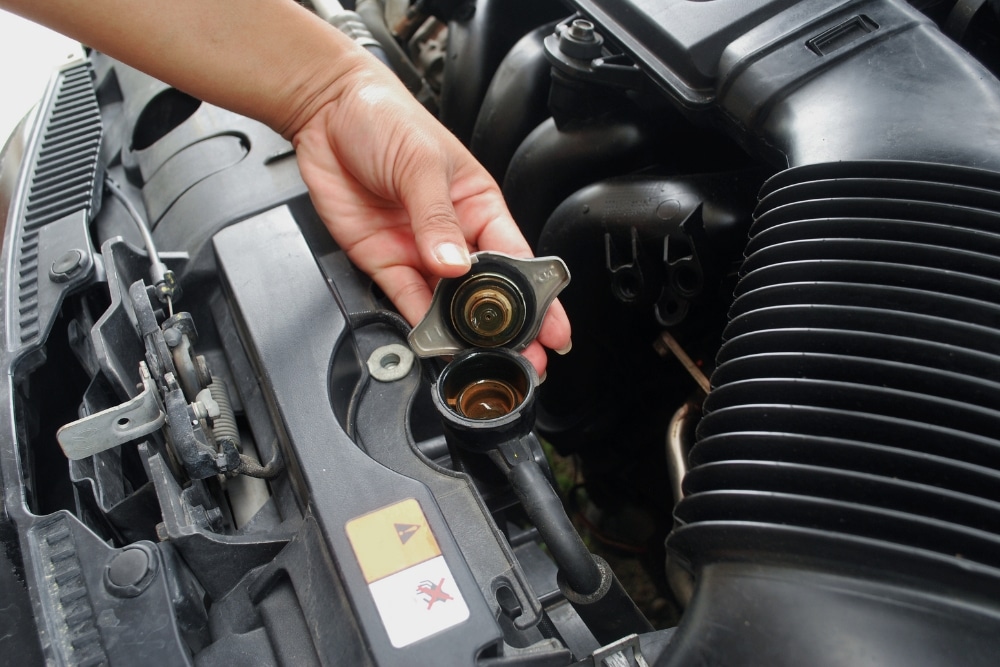
Why a Fall Cooling System Flush Matters for Colorado Springs Drivers
Express Auto Repair has kept Colorado Springs drivers road-ready for over 20 years. This fall, protect your engine
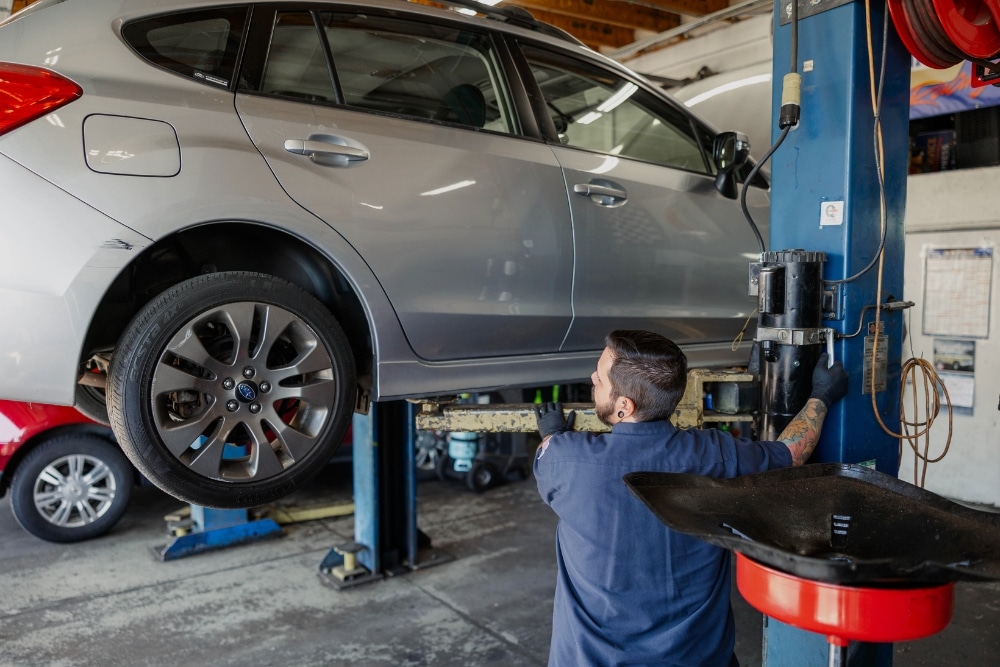
Trusted Auto Repair in Colorado Springs — Why Express Auto Repair Lasts
Express Auto Repair has been trusted for over 20 years, providing quality auto repair in Colorado Springs, CO
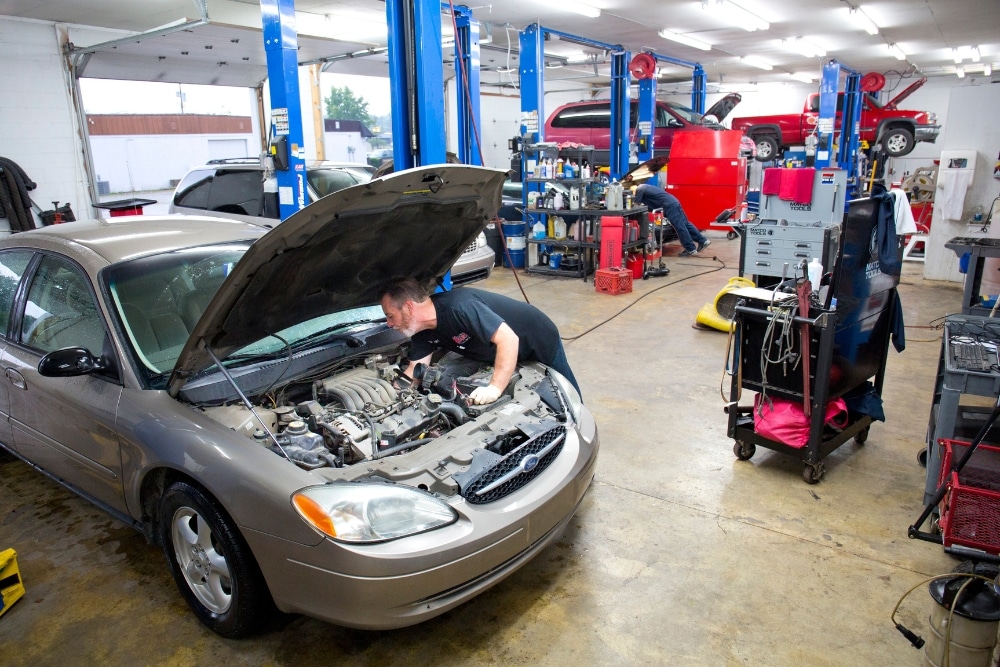
Late Summer Car Maintenance Tips for Colorado Springs Drivers
Late summer in Colorado Springs brings heat, storms, and traffic that strain your car. Express Auto Repair helps
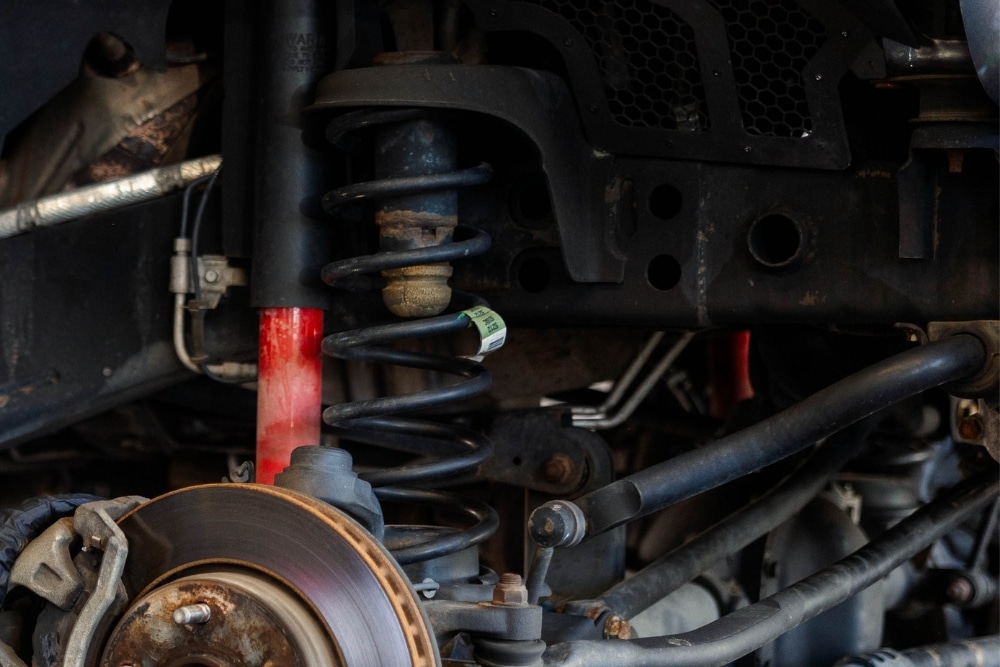
7 Warning Signs of Car Suspension Failure in Colorado Springs
Bumpy ride in Colorado Springs, CO? Express Auto Repair explains 7 signs of suspension failure so you can
